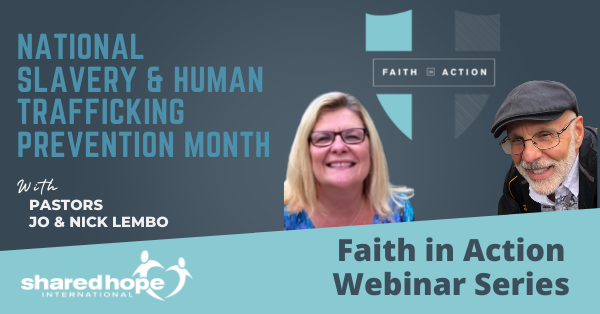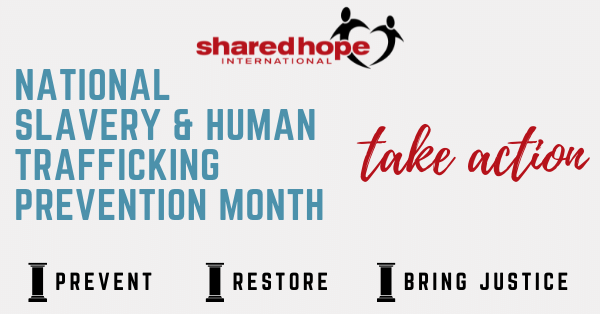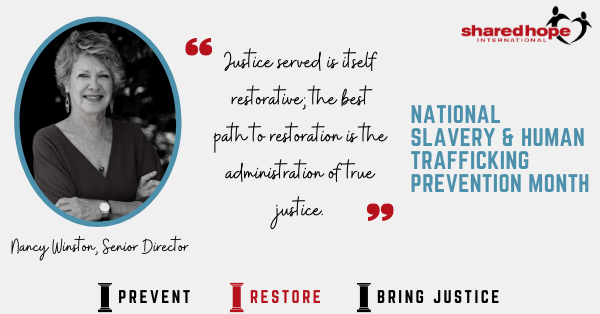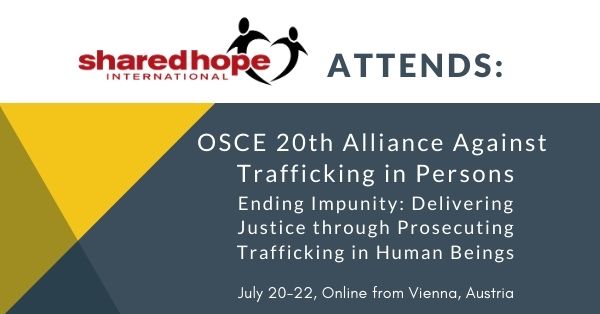A quarter of a century ago, U.S. Congresswoman Linda Smith embarked on a courageous journey into the heart of the brothel district in Mumbai, India. There, amidst the harsh realities of brutal sexual slavery and exploitation of women and children, she felt a divine mandate to take action. And so, in 1998 she founded Shared Hope International, driven by the mission to make a profound difference for those victimized by commercial human trafficking.
Since then, a dynamic story of prevention, restoration, and justice has unfolded, bolstered by the unwavering support of Shared Hope’s dedicated changemakers and supporters. Together, we have been instrumental in the fight to end modern-day slavery and injustice. From the early days when passionate individuals worked to build homes of restoration in India and Nepal, to providing education and resources to professionals, parents, and children across the US, Shared Hope has become a well-respected global leader in the fight against sex trafficking. And the story does not end there. As we approach our 25th anniversary, we stand resolute in our mission and continue writing stories of hope for the hopeless.
You, our supporters, have been integral authors of the stories of hope for the individuals we serve, collectively changing the world one life at a time. To commemorate this momentous occasion, we invite all the changemakers who have helped us write these impactful narratives to join us for a night of celebration. As we reflect on the lives YOU have changed over the last 25 years, we look forward to the stories still yet to be written.
Join us for the Stories of Hope Founder’s Gala on Friday, June 28th, 2024, when Shared Hope community members from around the nation will come together to celebrate this milestone at the Hilton in Vancouver, Washington. Tickets will be available for purchase at the end of February. For any inquiries or more information, please reach out to RSVP@sharedhope.org or call us at (360) 693-8100.










